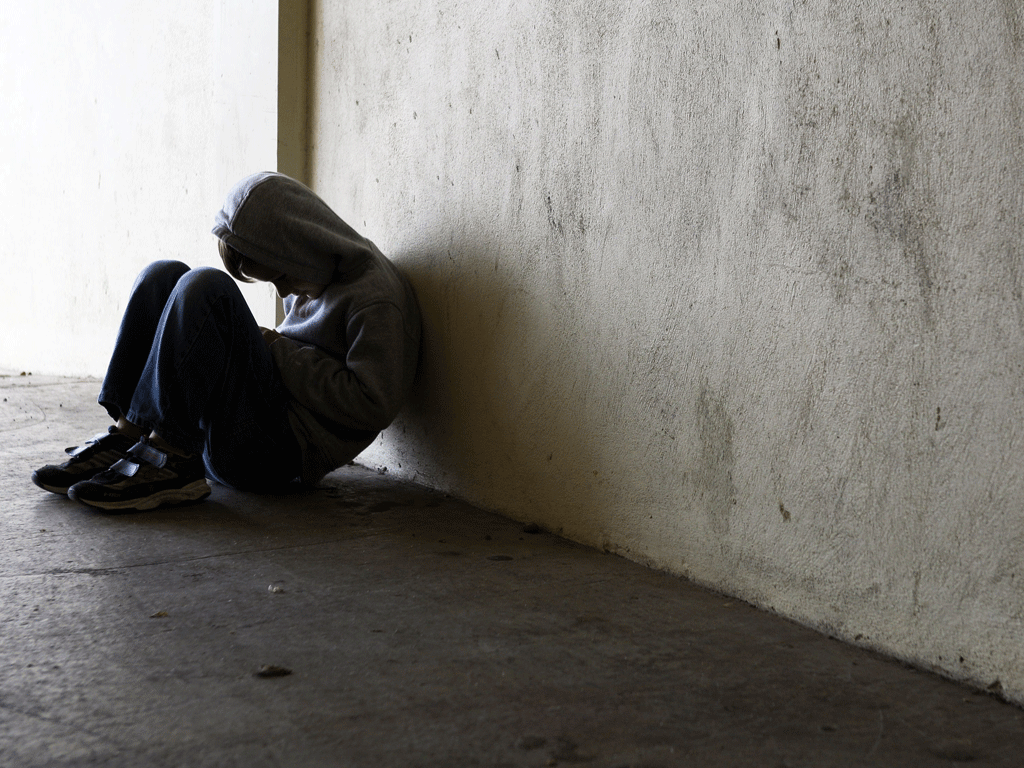Independent Appeal: Runaway success
At 14, Dorothy left home, preferring the violence of the streets. She tells Jonathan Brown how a charity changed her world

It is only a 10-minute bus journey from the Newcastle suburb of Walker into the city centre but it transported Dorothy into a different world.
The stress of the arrival of a new baby into the family home in the former shipbuilding community on the banks of the Tyne, where child poverty rates are 70 per cent, had proved too much for Dorothy, who was 14 at the time.
She was suffering from serious mood swings and there had been violent conflict between her sister and pregnant mother. Her relationship with her stepfather, who spent most of his time out fishing, had broken down and after the suicide of a friend she self-harmed.
Dorothy, which is not her real name, did not give much thought to what happened next but it set in train a pattern of behaviour that was to propel her into the city's darkest recesses where for a naïve and damaged child danger lurks at every corner. "The first time it just happened," she recalls.
She went to a party on the beach and stayed out all night. Then she didn't go home for a week. Dorothy knew her mum was angry and upset and the police were searching for her but it did not seem to matter. "I didn't really care," she says as a bone-chilling wind bounces off the vast looming superstructure of Newcastle's famous football ground and across Leazes Park.
After the initial absence Dorothy used her school bus ticket to make the journey "up the Toon". The park was one of her favourite haunts. On a summer's day it is a popular spot with shoppers. But by night it can be a different story. During one evening hanging out with friends she was stabbed and needed hospital treatment. On another occasion she jumped into the duck pond with her clothes on. "It was like come here and be bored with my mates or stay at home on my own. I didn't have any mates at school," she says.
According to a recent report by the Children's Society – one of the three charities being supported in this year's Independent Christmas Appeal – one in nine young people said they were harmed while away from home on the only or most recent time they walked out. A sixth said they slept rough or stayed with someone they met for the first time, and one in 10 said they begged, stole or "done other things" to survive.
Figures from Northumbria Police show on Tyneside the problem is getting worse. In the past year 531 under-18s were reported missing in Newcastle – up 14 per cent on the previous year. The number of times police were called also went up from 1,269 to 1,733, although it is estimated only a third of parents call police when their children run away.
Dorothy's arms are still criss-crossed with scars from when she struggled to cope. To her, running away seemed like the answer. Yet she was woefully unprepared for the perils she was facing. During her time missing from home she hung around a derelict lead works opposite the Metro Centre, frequented by homeless adults and drug users. "Sometime I'd think I'll go home but it was too late or there was no bus or I was scared I'd get wrong off my mum. So I'd have to stay out in the cold," she says.
Her story is a familiar one. Dorothy was referred to the Children's Society's Scarpa project in Newcastle city centre. Sitting in the warmth of the project in Brunswick Methodist Church, she admits to being surprised anyone was concerned about her. "I thought it was going to be horrible but my worker was really nice. She used to take us to cafes to talk to us, we did art stuff."
Today Dorothy has learnt some vital lessons that will help keep her safe: who and who not to talk to, for example. She tells her mum when she is going out and where she will be. Crucially she has stayed in school, has an excellent attendance and hopes to go to college to study photography. But perhaps most importantly she has on-going support from people she has grown to trust. "If something is bothering you, you can just drop in. If you don't feel safe you can knock on the door," she says.
CLICK HERE TO DONATE NOW.
Subscribe to Independent Premium to bookmark this article
Want to bookmark your favourite articles and stories to read or reference later? Start your Independent Premium subscription today.

Join our commenting forum
Join thought-provoking conversations, follow other Independent readers and see their replies